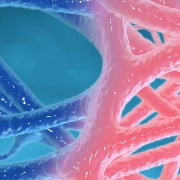Precision in medicine in action
Genomics can help to target treatments for patients with cancer, rare inherited conditions, and infectious diseases
Information from a patient’s genome can help physicians tailor treatment in order to minimise side effects and optimise health outcomes. This, in essence, is precision medicine.
Today in the UK, a woman with breast cancer will routinely have the tumour genetically tested for mutations in the HER2 gene. This specifies human epidermal growth factor 2 (HER2) protein found on normal breast cells.
However, in around one-fifth of breast cancers, the HER2 gene is amplified – that is, multiple copies are present, resulting in much higher levels of HER2 protein than normal on the breast cancer cells, which are then said to be HER2-positive.
The bad news is that HER2-positive tumours are associated with a poorer prognosis, probably because the GRB7 oncogene that drives the formation of tumours is frequently amplified at the same time as HER2.
However, HER2 is also the Achilles’ heel of such breast cancers, successfully targeted by a modern biological therapeutic called trastuzumab (Herceptin). This recognises and binds to HER2 proteins, suppressing cell multiplication; the HER2-rich cancer cells receive a much higher effective dose than other cells.
As HER2-negative breast cancers will not be successfully targeted in this way, tumour testing is a prerequisite for the use of Herceptin.
Beyond precision cancer treatments
While cancer, as a genetically-driven disease, is perhaps most amenable to precision treatment, there are other opportunities.
The first precision treatments for inherited diseases are emerging, such as ivacaftor, which is used for patients with cystic fibrosis caused by the ‘Celtic gene’ mutation.
Testing pathogen DNA can reveal important information about the impact a treatment is likely to have on the infectious disease (for example, revealing antibiotic resistance or susceptibility), and more rapidly than traditional methods of analysis.
Similar interrogation of patient DNA can tell us not only to which diseases an individual may be more susceptible, but also how that individual is likely to respond to a given treatment, ie severity of side effects, and the effectiveness at a given dose.
This pharmacogenetic information matters, because standard treatments simply don’t work uniformly well for all patients. Often they don’t work at all, and may cause significant adverse effects.
Companion diagnostics and costs
The UK is one of the front-runners of precision medicine, with the 100,000 Genomes Project expected to drive important new developments. But there are challenges ahead.
Tailored therapeutics necessitate the development of companion diagnostic tests to determine whether the treatment will be safe and effective to use. However, the logistics of bringing two separate biomedical developments into practice – often necessitating partnership working in the early stages and, further down the line, approvals from discrete regulatory and funding regimes – are challenging
A further complexity is that in cancer, to be absolutely sure of which genetic mutations are unique to the tumour and suitable for targeted treatments, both normal and tumour tissue need to be tested – which increases costs.
However, the potential benefits are significant. Advocates of precision approaches argue, convincingly, that getting the right treatment to the right patient on time will reduce expenditure on ineffective treatments, repeated and extended hospital stays, and save and improve lives.
Find out more
To learn more about these applications of genomics in healthcare, try one of our free online courses.
–









